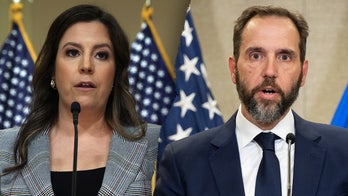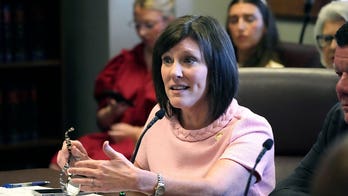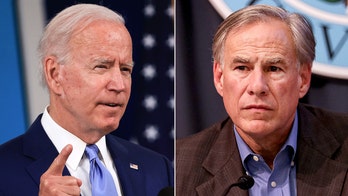There is no question the customs and practices of the U.S. Senate can be arcane and, at times, down right hard to understand. For instance, senators are allowed to secretly put a hold on an Administration's nominees to federal posts for any reason, even if their beef has nothing to do with the appointees. It's actually the same with bills, as well.
Here's how it works. A member calls up the cloakroom for their party, a legislative lounge next to the chamber, and tells the staff there that they want to be notified if a nominee or bill is called up on the floor. The staff then coordinates that request, known as a "hold," with the staff on the Senate floor. Several aides said that staff also can lodge a "hold" against a nominee, sometimes without members knowing it. No one, technically, has to reveal what they are doing for the public record.
Americans are frustrated with their government, polls show, and this could be one of the reasons. A bipartisan group of senators is going to try to end the practice with an amendment to the financial reform bill that's currently on the Senate floor, more on that below, but first, back to the process.
In talks with numerous aides, there is no rule, per se, that governs the use of holds, and the cloakroom will not publish who has told them what. So it is all the more curious that in early 2007, the Senate sought, in legislation concerning lobbying and ethics reform, to reform the "hold" custom. The intent of the measure, authored by Sens. Ron Wyden, D-OR, and Chuck Grassley, R-IA, was to shed some sunlight on the practice of blocking a nominee/bill behind the scenes.
Once a senator, on the Senate floor, tries to get a nominee/bill approved, and there is a formal objection (could be by anyone, not necessarily the person who has placed the hold), the clock starts ticking --- within six legislative days the member must out themselves in the Congressional public record and state their reason for the hold.
But here's the problem. There's no cop on this beat - therefore no enforcement. We're talking about a custom, not a rule, so the Senate Parliamentarian, the neutral arbiter of the rules, has no place here. Also, one senator who is holding up a nominee/bill can, before six days has passed, ask another senator to take over the hold, a move Sen. Sheldon Whitehouse, D-RI, Thursday called "hold laundering."
Sopranos-style humor aside, Democrats are frustrated that President Obama's nominees are, right now, stacking up at a rate higher than that during the Bush Administration, 96 vs. 20, according to a senior aide to Sen. Dick Durbin, D-IL, a number not disputed by GOP aides, though one did say that this is a snapshot. On any given day, a GOP leadership aide said, the number could change dramatically, with the aide noting that the White House sent up a tranche of nominees recently. Another GOP aide said this is one of the few tools the GOP has for leverage.
Enter Sen. Claire McCaskill, D-MO, who has made it her personal mission to end the secret hold practice. This former state auditor has dogged Republicans, in particular, for weeks to end the holds. It's important to note, Democrats used the secret hold, as well, until McCaskill's effort. According to the senator, Democrats have now cleared all of their holds on nominees and bills set for floor action (unclear about holds on the committee level by Dems).
McCaskill has even circulated a letter among her colleagues that puts members on record as never again using a secret hold, not even under a Republican president. The senator says two Democrats have not yet signed: Sens. Max Baucus, D-MT, and Robert Byrd, D-WV. No Republican has signed the letter.
One GOP leadership aide said that McCaskill is "starting down a slippery slope," though. "It poisons the well. It invites members to lay down controversial amendments that could hurt other members back home," the aide said. "McCaskill's effort would force a public objection that might be politically perilous for another member."
But McCaskill would not back down. "That sounds like somebody who's more worried about getting elected than being honest about his views on policy. If you can't take tough votes around here, go home," the senator told Fox.
Wyden and Grassley have now returned with an amendment to the financial reform bill on the floor (it's not totally clear they'll get a vote), and the senators would create a new standing rule that would shrink the six-day period to 48 hours and eliminate the ability to transfer a hold. But to create a rule, the senators will have to surmount a very high hurdle, having to muster 67 votes.
But the problem still remains -- who will enforce this?
Senate Majority Leader Harry Reid, D-NV, recently suggested that the Ethics Committee might be able to investigate. But it's clear that many members do not want to go that route.
Of course, President Obama could offer a recess appointment to nominees that are stuck. Durbin told reporters Thursday, "I don't know if they'll turn to any more recess appointments, but I can understand their not only frustration but desperation over some of these key appointments."
Meanwhile, Sen. Tom Coburn, R-OK, who is the only member to follow the rules and publicly reveal his holds with accompanying reasons in the public record, says Democrats are barking up the wrong tree.
"It's absurd that while Greece - the cradle of civilization and democracy - is burning, the U.S. Senate is complaining about secret holds. We are moving toward a similar crisis not because of secret holds, but because of out-of-control spending, much of which is done in secret," Coburn said.
Coburn has his own amendment to stop spending that is quietly approved by unanimous consent behind the scenes through an expedited process. No Democrat has expressed support for the Coburn measure.
"My amendment simply says that if politicians in Washington want to spend beyond our means they should have the courage to explain their intentions to the American people, not hide behind secret procedures. I've never objected to explaining my holds but disclosing so-called secret holds is not the fundamental problem. The problem that impacts our country is secret spending," Coburn said.
*Dan Pfeiffer, Communications Director at the White House, blogged about secret holds earlier today and posted a list of the nominees that are being held up.




